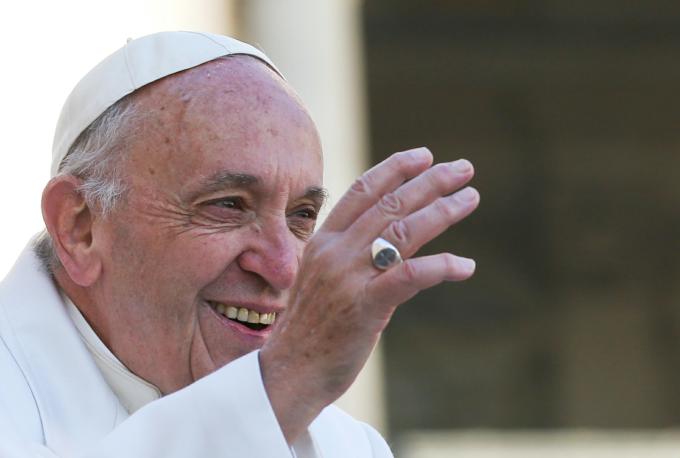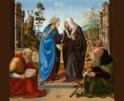
Culture

Duncan
At the end of the new feature-length documentary "Pope Francis: A Man of His Word," still playing at local movie theaters, the Pope encourages us to smile and have a good sense of humor. His various solemn pronouncements have usually been named with some variant of joy: from the "Joy of the Gospel" to the "Joy of Love." Indeed, his recent Apostolic Exhortation on the Call to Holiness in Today's World is aptly entitled "Rejoice and Be Glad," which repeats the idea of being happy, really happy, as a response to the good news of Jesus Christ, a bit like the Magi who, as St. Matthew tells us, "rejoiced with exceedingly great joy," when they rediscovered the star that led them to Bethlehem.
Not surprisingly, there is a section of Pope Francis' missive captioned "Joy and a Sense of Humor," where he expands on this idea. "Far from being timid, morose, acerbic or melancholy, or putting on a dreary face, the saints are joyful and full of good humor." He mentions as examples of this St. Thomas More, St. Vincent de Paul, and St. Philip Neri, whose memorial we celebrated last week, on May 26. St. Philip, known as the Apostle of Rome, was a 16th-century secular priest known for his cheerfulness and jests. As Ponelle and Bordet note in their biographical "St. Philip Neri and the Roman Society of His Times," "There can be no doubt that (his extraordinary state of joy) is something more than natural gaiety of character, outbursts of humor, or vivacity and high spirits. It is something supernatural, and all the witnesses are struck by the radiance and exultation which the presence of the Spirit produced in Philip. We are told again and again that he was always joyful, even in his illnesses." One of his maxims was "To preserve our cheerfulness amid sicknesses and troubles, is a sign of a right and good spirit."
St. Thomas More, English Catholic lawyer and martyr, died with a jest on his lips. He told his executioner on the way to the chopping block: "See me safe up; for in coming down, I can shift for myself." Pope Francis quotes from a prayer attributed, though apparently erroneously, to St. Thomas: "Grant me, O Lord, good digestion, and also something to digest. Grant me a healthy body, and the necessary good humor to maintain it... Grant me, O Lord, a good sense of humor. Allow me the grace to be able to take a joke and to discover in life a bit of joy, and to be able to share it with others."
In their good sense of humor, St. Philip Neri and St. Thomas More remind me of my spiritual father in Opus Dei, St. Josemaria Escriva, who was canonized in 2002 and said that when he founded Opus Dei in 1928, he only had "twenty-six years of age, the grace of God, and a good sense of humor." There is an amusing story from his life posted on the internet in an article by Andrew Soanne: "There was an occasion when St. Josemaria and some priests were in a car being driven erratically around Madrid by an inexperienced driver called Caesar. The passengers were petrified, especially when the car swerved off the road, travelled along the pavement for a few yards and finally collided with a lamp post. In the silent tension that followed there came from St. Josemaria's lips: 'Ave, Caesar, morituri te salutant!' (the gladiators' greeting to the Roman emperor: 'Hail, Caesar, we who are about to die salute you.') And the fear and the tension vanished."
Pope Francis comments, "Hard times may come when the cross casts its shadow, yet nothing can destroy the supernatural joy that adapts and changes, but always endures, even as a flicker of light born of our personal certainty that, when everything is said and done, we are infinitely loved."
- Dwight G. Duncan is professor at UMass School of Law Dartmouth. He holds degrees in both civil and canon law.
Recent articles in the Culture & Events section
-
Tolkien's world, still popular on the big screen, began with faith and wordsCecilia Hadley
-
Scripture Reflection for Dec. 22, 2024, Fourth Sunday of AdventDeacon Greg Kandra
-
Getting adult children to Christmas MassGreg Erlandson
-
The work of redemptionEileen McLaughlin
-
Intern reflectionsEmily Greco and James Kaeser


















